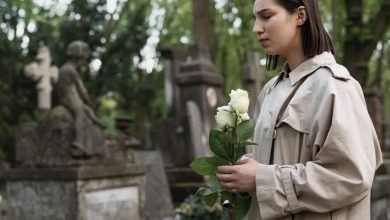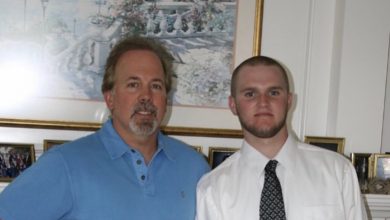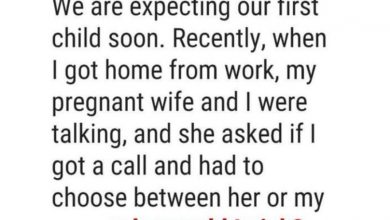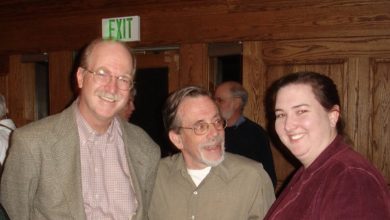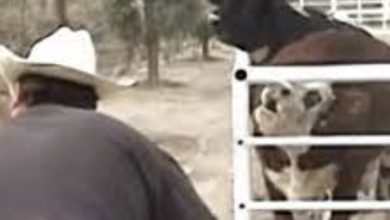I Drove Out My Late Wife’s Son, Saying He Wasn’t Mine — A Decade Later, the Truth Broke Me

I kicked the boy’s old backpack across the tiles and stared at him with a face I knew looked empty.
“Go,” I said. “You’re not my son. Meera is gone. I owe you nothing. Leave and go wherever you want.”
He didn’t cry. He didn’t argue. He lowered his head, picked up the torn bag, turned around, and walked out. Not one word.
Ten years later, when the truth finally reached me, all I wished for was a way to rewind time.
My name is Rajesh. I was thirty-six when my wife, Meera, died from a sudden stroke. She left behind our small apartment… and a twelve-year-old boy named Arjun.
Arjun wasn’t “mine.” That’s what I told myself. He was Meera’s child from a relationship she never spoke about. When I married Meera at twenty-six, I thought I was being a good man. I admired her strength. She had carried heartbreak and a pregnancy without help, and she was raising a child on her own. I said the noble words: “I accept her, and I accept her son.” I said them out loud. But I never said them with my heart.
Love that is only duty doesn’t last. It grows thin. It turns cold. It becomes a mask you wear until the string snaps.
I fed Arjun. I paid for his uniforms. I went to school meetings when Meera asked. I did all the things a parent is supposed to do. But I did them like a clerk ticking boxes. I told myself the truth in the quiet: He is a weight I carry for Meera’s sake.
When Meera died, the string broke. The last tie between me and the boy was gone. He remained polite, quiet, careful not to take up space. He kept a distance even in the same room. Perhaps he already knew I had never let him in.
One month after the funeral, I said the worst sentence of my life.
“Leave. Whether you make it or don’t, it’s not my concern.”
I expected tears. I expected pleading. He gave me neither. He left without looking back. And I felt nothing. No guilt. No pity. Just a hard, blank surface where a heart should be.
I sold the old place. I moved. Work picked up. My business did well. I met someone new. No children, no history to complicate things. I built a life of quiet, neat lines: money, dinners, sleep, repeat. Some nights a small thought would pass by, light as a moth at a window: Where did Arjun go? Is he okay? I didn’t open the window to let that thought in. Over time, even that faint curiosity faded.
A twelve-year-old boy without parents—where does he end up? I didn’t know. I told myself I didn’t care. In my worst moments, I even thought, If he’s gone from this world, maybe it’s better. At least there’s no burden left behind. I see those words now and I flinch. Back then, they felt clean and honest. They were only cruel.
Ten years passed.
One Thursday afternoon, my phone rang. Unknown number.
“Mr. Rajesh?” a voice asked. “Could you attend the grand opening of the TPA Gallery on MG Road this Saturday? There is someone who very much hopes you will come.”
I almost ended the call. I don’t know artists. I don’t go to galleries. Before I could hang up, the voice added, “Don’t you want to know what happened to Arjun?”
The name struck a place in me I thought had turned to stone. I hadn’t heard it aloud in a decade. My hand froze over the screen. I swallowed.
“I’ll come,” I said.
The Gallery
The space was white and bright, with clean walls and polished floors. People moved slowly, whispered, and looked serious. Paintings hung in even lines. Many were oil on canvas—thick strokes, deep colors, a distance in them that pushed me back. I read the title cards. Over and over I saw the same three letters: TPA.
The initials burned. I didn’t know why.
“Hello, Mr. Rajesh.”
I turned. A tall, thin young man stood there in simple clothes. His eyes were steady and dark. He watched me the way a person watches a tide—measuring if it is coming in or going out.
It was Arjun.
He wasn’t the small boy I had sent into the night. He was composed, spare, quiet in his body. There was a calm weight to him, like a tree that had learned how to stand through storms.
“You…” I said. “How—?”
He cut in gently. His voice was low and clear, like glass you tap with a fingernail. “I wanted you to see what my mother left in this world. And what you walked away from.”
He led me to a large canvas draped with a red cloth.
“This is called Mother,” he said. “I have never shown it to anyone. Today I want you to see it.”
I pulled the cloth aside.
Meera looked back at me from a hospital bed. Pale skin. Fine lines at the corner of her mouth. Eyes that still held a trace of courage. In her hand, a photo: the three of us from our only trip together, awkward and almost smiling, sunlight on our faces. My legs felt weak. I gripped the frame for balance.
Arjun did not raise his voice. “Before she died, she kept a diary,” he said. “I always knew you didn’t love me. But I thought one day you might try. I hoped for that as a child hopes for rain.”
He paused. His next words broke the air between us.
“I am not another man’s son.”
I could not breathe. The room went too quiet.
“Yes,” he said. “I am your son. She was already pregnant when she met you. She told you the baby was from someone else to test your heart. Later, she did not know how to tell you the truth without losing you. I found her diary in the attic, wrapped in an old sari.”
The gallery wall pulled away from me. The floor tilted. The worst thing I had ever done did not just look ugly—it changed its shape. I hadn’t shoved out a child I regarded as a burden. I had thrown away my own blood.
Arjun stood in front of me. He didn’t gloat. He didn’t accuse. He didn’t ask for anything. He simply faced me with the truth and let it be heavy all by itself.
I moved to a chair in a corner and sat down. The noise of people and footsteps blurred. His sentences ran through me like knives. I’m your son. She was afraid you would stay only out of duty. She chose silence because she loved you. You left because you feared being a father.
I used to tell myself I was noble for “accepting another man’s child.” Those words taste bitter now. I had not been kind. I had not been fair. I had not been a father. When Meera died, I took a grieving boy and pushed him from the only doorway left. I was blind. Worse: I had closed my own eyes.
Arjun turned to go.
“Wait,” I said, standing too fast. “Arjun, if I had known you were mine—”
He looked at me. Calm. Distant, but not cruel. “I did not come here for your apology,” he said. “I do not need your recognition. I wanted you to know that my mother did not lie about loving you. She loved you. She stayed silent so you could choose love freely, not because you had to.”
There was nothing I could say to that. He placed an envelope in my hand.
Inside was a copy of Meera’s diary pages. The writing slanted and shook.
If you are reading this, forgive me. I was afraid. I feared you would love me only for the child, and I did not want that. But Arjun is ours. From the moment I knew, I wanted to tell you. Then you hesitated, and I lost courage. I hoped that if you truly loved him, the truth would not matter.
I did not weep in public. But my chest shook, and my throat closed, and a life I could have had—a life with my son—stood in front of me like a door I had locked from the inside.
Trying to Repair What I Broke
You cannot walk back ten years. You can only take the next step with your eyes open. I tried to take that step.
In the weeks after the gallery, I sent short messages. I waited outside once or twice, not to force a talk, only to offer food or tea. I wanted to be nearby, like a chair you can sit on if you get tired. I did not ask for forgiveness. I did not ask for the word Dad. I hoped for the chance simply to be present.
Arjun did not need me. That much was clear. He had built his own strength, his own career, his own name—TPA—without me. One afternoon he agreed to meet. We sat on a low wall outside the gallery. The traffic hummed. A dog slept in a pool of shade.
“You do not have to fix yourself on my account,” he said, his voice kind, firm. “I don’t blame you.” He held my eye so I would not miss the next sentence. “But I don’t need a father. The one I had chose not to need me.”
I nodded. He was right. The old me wanted to argue, to explain. The new me kept still. I had spoken enough in my life. The harm hadn’t come from lack of words; it had come from lack of love.
I did the only thing that made sense to me. I ended the relationship I was in—I had built it on comfort, not truth. I opened a savings account in Arjun’s name and transferred everything I could. When I told him, he shook his head. “I don’t want your money,” he said. “I didn’t do any of this to be repaid.”
“I know,” I said. “It is not payment. It is me putting what I can into the place where I should have put my heart.”
He thought for a long moment, then said, “I’ll accept it—but not for the money. Because my mother believed you could still be a good man.”
I began to do small, quiet things that didn’t demand attention. I called old business contacts who collected art and told them about a young painter who had something to say. I introduced Arjun to a curator I trusted. I helped negotiate a better contract and then stood back. I went to his openings and stayed at the edge of the room. If he looked over, I gave a nod and a small smile. If he didn’t, I kept my eyes on the work.
On the anniversary of Meera’s death each year, I went to the temple at dawn. I knelt in front of her photo and told the truth plainly. “I was afraid. I chose myself. I left your son, our son. I cannot undo it. But I will spend the rest of my days choosing the right thing, step by step.” In the early years, no one heard that except the walls and the gods. That was enough.
Arjun kept moving forward. When he turned twenty-two, he received an invitation to an international show. The note from the gallery abroad praised the honesty in his canvases, the discipline in his light and shadow, the way he held back sentiment and still made you feel it. On his own page he posted a single line: For you, Mom. I did it.
That night, my phone buzzed. A new message from a number I knew by heart even though I had never saved it.
If you’re free… the exhibition opens this Saturday.
Two more dots appeared and blinked. Then one word arrived.
Dad.
I stared at the screen until the letters blurred. That simple word—four characters—did not erase ten years. It did not even forgive them. But it marked a border in my life. On one side: a man who thought duty was love and hardness was honesty. On the other: a man who finally understood that love is a choice you make every day, and sometimes the first choice is to face the harm you’ve done without turning away.
What Meera Left Us
I keep a copy of Meera’s diary pages folded in my wallet. The paper has softened at the corners. I have memorized the lines, but I still read them when I feel the old shame rise up and tell me I will never be anything but the man who shut the door on a child.
If you truly loved him, the truth would not matter, she had written. She was wrong about one thing—the truth matters. It always matters. It cut me open, and in that cut there was room for something true to grow. But she was right about love. If I had loved without counting cost, I would have stayed. I would have stayed even if Arjun hadn’t been my blood. I would have stayed even if the whole town had laughed at me for raising another man’s child. Because love is not a math problem. It is the daily act of showing up.
People ask how I live with what I did. I tell them I do not live with it in the sense of making peace with it. I carry it the way you carry a scar. It is part of me and also a warning. It says: do not close your eyes again; do not confuse comfort with goodness; do not choose fear and call it logic.
Arjun signs his canvases TPA. I once asked him, “What does it stand for?”
He smiled. “Three things,” he said. “The first is my own name.” He tapped the letter A with his finger. “The second is Tiny Acts—a reminder to myself that great paintings are made one stroke at a time, the way healing is made one honest act at a time. And the third is my mother’s name, folded into the middle, so I don’t forget who taught me to be brave.”
I don’t always understand his art. But I understand his discipline. I see him get up early, stretch canvases, grind colors, paint, scrape, paint again. I see the way he listens—to light, to silence, to the small movement in himself that says, not yet… now. I bring him tea and leave it by the door. I don’t fill the room with talk. I don’t give advice unless asked. I try to be the kind of quiet that makes courage feel safe.
We do not pretend the lost years didn’t happen. Sometimes a smell, a word, a certain shade of blue will lift a memory between us like a thin glass. We look at it together, say what is true about it, and carefully set it down. On other days we laugh about nothing. Once we argued about how much light a painting needed; he was right, and I told him so. Another time he asked me about a contract clause and I showed him a better path. This is what our life looks like now: not perfect, not healed once and for all, but honest and in motion.
Every year, on the day the gallery first hung Mother, we go to the hospital courtyard where Meera used to sit when she felt strong enough. We plant a small flowering shrub in a pot. Arjun paints the pot with a single word. The first year he wrote Brave. The second year, Listen. Last year, Stay. This year he painted Choose and handed me the brush. “Your turn,” he said.
I wrote Again beside it.
Choose again. That is what repentance means to me now—not a single speech with tears, but a thousand plain choices that point in the right direction.
A Note to Anyone Who Needs It
Some mistakes cannot be undone. The harm we do can echo for years in another person’s life. But there is a kind of sorrow that is not just pain; it is a turning. It doesn’t ask for applause. It doesn’t beg for the past to be erased. It stands up, faces the truth, and begins the long work of doing right, one small act at a time.
If you find yourself where I stood—cold, certain, calling fear “logic”—stop. Open the door you’re about to close. If you already closed it, open it now. You do not control whether the one you hurt will walk back through. You only control whether you are there, with the door unlocked, with a chair by the window, with enough quiet in you to hear another heart.
I once threw away my son because I believed blood was everything and duty was enough. I was wrong on both counts. Blood is not what makes a father. And duty without love is just a clean-looking way to fail a child.
Years later, a single word on my phone—Dad—did not make me whole. It gave me a path. I am walking it the only way I know how: humbly, slowly, in the open, choosing again.
For Meera. For Arjun. And for the man I am still learning to be.




